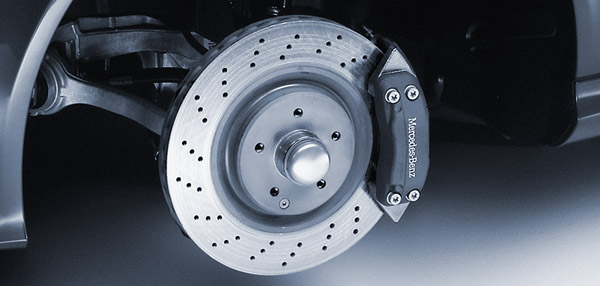
The security of your car is vital, even the safest vehicle can have brake failure, if not maintained properly. If your car’s brakes don’t work properly, the consequences could be catastrophic.
Most people are not aware of some common signs that your brakes may need to be serviced.
A thorough inspection includes checking:
-
Brake Pad Wear
-
Brake Fluid Levels
-
Disc wear/warping
-
Brake Lines and hoses
-
Dashboard Warning Lights
Symptoms of brake issues include:
-
Illuminated Brake Dashboard Warning Light
-
Soft or Sinking Brake Pedal
-
Unusually Hard Brake Pedal
-
Squealing Noises
-
Vibrations when Braking
Inspection and Maintenance
Hydraulic Brake Systems and subsequent components require regular inspection and routine maintenance due to the considerable stresses and forces that they endure.
To ensure your safety the Antilock Braking System (ABS) and Electronic Stability Programme (ESP) should be serviced regardless of the age of the vehicle. This service should include a brake fluid check to ensure there is no water in the system that could ultimately effect performance and most importantly your stopping distance.
Did you hear?
Some brake noises are normal. Others types can indicate problems…
Grinding
Grinding due to rust build-up on the discs is of little concerns. The build-up usually can be knocked off, sometimes it disappears after a few stops. However, if grinding persists, there could be a more serious problem with the discs or pads, and you should have them checked.
Loud squeal
Disc brakes with wear indicators may produce noise that indicates it’s time to change the pads.
Trace squeak or squeal
Semi-metallic brake linings sometimes emit such a sound. Rain, humidity or cold brakes in the morning also could be the source. If the problem persists, have it checked out.
Clicking
Sometimes accompanied by a slight pulsing in the brake pedal at low speeds, this is most likely the anti-lock braking system performing a harmless self-check.